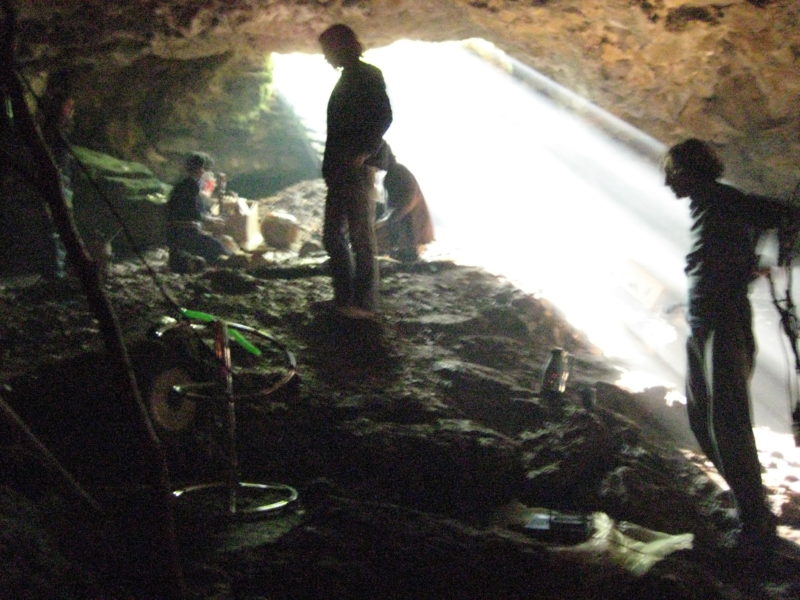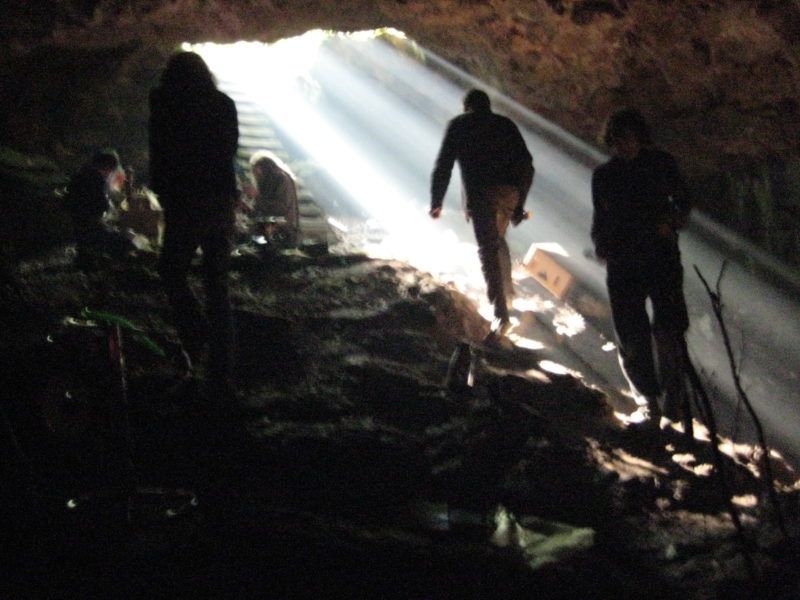METABOLISMUS

werner nötzel
First let me say that due to the structure and nature of the group of musicians called “Metabolismus” there can’t be any answers/statements by any single member that stand representative for all others. Each person’s background is different, people stay individuals and don’t aspire to integrate in a kind of group personality. While actually playing the music sometimes something like a group mind can manifest itself (any practician of collec- tively improvised sound can attest to this), but everybody is self-determined and self-responsible of their actions at any time. So these answers are, if not indicated differently, by me, Werner Nötzel, which does not mean I’m trying to be a spokeperson for anybody else, let alone represent the entire group of people that collectively form Metabolismus.
niels latomme
Let’s start with an obvious question then. It’s maybe worth asking for people who over- looked Metabolismus: you’ve been around since long. How did it start and how did it evolve?
wn
Personally, I wasn’t there at the very beginning, I joined at some point during the 80s. The earliest recordings under the name Metabolismus are from around 1981, made by an early nucleus forming itself around Thomas Schätzl as a kind of gravitational center. As it was the case myself, I would assume that the initial spark probably came from the collision of the powerful forces of boredom and Love of Music. It evolved naturally by people stick- ing around as long as they found the process and/or results interesting or entertaining enough to do so. For some of us it’s over 35 years now that we didn’t find anything better to do with large parts our time and energy...
nl
People describe you more as a collective than a band with fixed members. I know this distinction is a superficial one, as a lot of bands switch members, and even if they proclaim there is one brain behind it, there’s always a shared author- ship, I suppose. Are you occupied with notions like collective authorship, shared knowledge and political utopism?
wn
All credits on all recordings are shared evenly by all participants,
if that’s what you mean by collective authorship. I’m looking at it all as parts of a Gesamtwerk that would be different if any of the parts were different. So no one can claim more authorship than anybody else, even if you sometimes can hear or feel the influence of one person stronger than others’.
Hmm, political utopism... Politics is overrated, in my opinion.
nl
There is often a reference made to the Krautrock genre when describing your music. But what are your own influences?
wn
I think it’s very hard to define the term Krautrock. At some point it represented everything from bands like Scorpions or Lucifer’s friend to folk-influenced groups like Witthüser & Westrupp to more abstract stuff Like Limbus, Anima-Sound, Zweistein or Annexus Quam, and everything in between as long as it came from Germany. So whatever anyone’s influences are could be reflected somewhere in that very broad Kraut-spectrum... People probably use that word to describe Metabolismus because most members are from Germany and it’s an easy category to pull out of a hat. About our actual influences: naturally, they are as diverse as the members of the group, whoever you ask will give you a different answer. In my case I can’t give you a definite list, it’s not a closed process, whenever I hear some- thing interesting it inevitably influences me just by me engaging with it in some way. In the beginning it was primitive psychedelic sound, like the Godz, the Nihilist Spasm Band, Silver Apples. the Shaggs, the Fugs and bands like that. I liked movies and started noticing unusual sounds and textures in film soundtracks at a relatively early age. John Cage’s “Anything can be music / Music can be anything”-approach was very appealing to me. Thinking about it, truthfully, before I consciously listened to any of that as a teenager (when I started playing music) I heard the Beatles on the radio as a kid like everybody else at that time, along with a lot of British bands like the Stones, the Kinks, bands that got popular airplay in the early 70s. Charts music, I guess. It wasn’t a conscious choice but if you’re listening to hours of that music on the car radio on family holiday trips at an age when your interest in music awakens and you’re easily influenced, how could that not shape your musical imagination? And it’s great music that contains endless details to discover...
nl
You are playing on a festival that proclaims to find the parallels between the non-western and western musical traditions. Is the non-western something that inspires you and influenced your music?
wn
I generally think that, if you only look back far enough, all music comes from one and the same source. It’s a natural thing, using materials you find in nature to build instruments. Sound is created by natural physical processes (as music itself is part physical, part “spiritual”, part psychological process and therefore can bridge all these fields) pitch and pitch relations are always representing mathematical principles, people experienced that long before Pythagoras made it subject of his investigations. And in all cultures music was originally created in and for ritualistic and quasi-religious settings and purposes. So naturally, the parallels between all traditions are profound and numerous. The distinction between western and non-western musics seems artificial and unnecessary to me. As in most musical styles and traditions. I (again, personally) find plenty of things in the non-western that inspire and influence me.

nl
How do you create music, do you come together and start jamming, or do you work out compositions or songs to enter the studio and record them?
wn
It depends on the occasion. Every situation has it’s own circumstances and conditions that will suggest the method being used to create the appropriate music. Sometimes we do covers, for example. It’s defined by set and setting, we don’t have a formula or variations of that we generally follow. A definition of Metabolismus is constant transmutation.
nl
Is humour something important in your music?
wn
Yes.
nl
I’ve been in the studio where you recorded in Stuttgart, I was impressed by the old vintage gear. Are you gear freaks? And does vintage material actually sound better than new stuff?
wn
Again, there’s no way to generalize that for all members, but those who are more closely involved with the group’s recording studio are very much interested in vintage gear. Of course, much of the gear wasn’t very vintage at the time the band started. In the 80s it was simply cheaper to buy a piece of equipment that was 10-15 years old than to get something new, unless you stole it. Or you got something from friends or relatives that they didn’t use anymore. There were no super cheap Far-East versions of things yet, so if you looked for something affordable you found something old, mostly from the 60s which was the peak time for European gear manufacturers. There was quality stuff by companies like Höfner, Echolette, Dynacord, Schaller, Eko, Binson, WEM Watkins etc everywhere for very little money. That’s how it all started. And since it’s been a lot of people over a long period of time things accumulated...
Why does one prefer the way something sounds over the sound of another version of the same thing? There’s no objective better in that field of interest. I love those old instruments and machines for many reasons, and I’m aware that one of them is probably nostalgia. Does it sound better? It sounds different. And it does that in a way that fits my personal aesthetic criteria, so I prefer it. But everybody has to answer that question for themselves... There’s something to be said for the convenience of modern technology, and if it sounds good to your ears why not to use it?
nl
And the last question, what is your favorite Neil Young solo?
wn
When I hear the name Neil Young the first thing that pops into my mind is On the Beach. But I’m sure there’s some cool guitar/synth stuff on Trans. Maybe I should re-listen to that one, haven’t heard it in years... I remember liking Sample and Hold, but can’t recall the solo, if there even is one in that song...